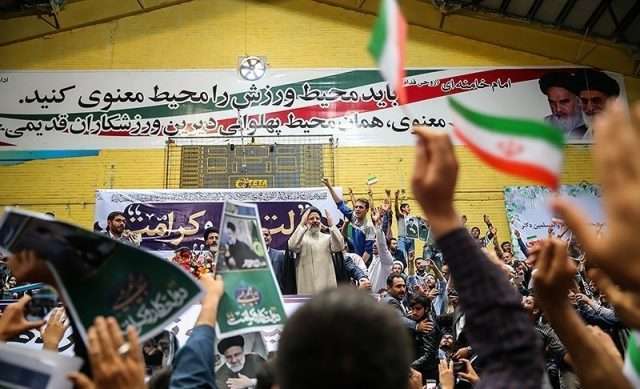Why we should monitor the Iranian presidential election

Persian Files ISSN 2975-0598 Volume 3 Issue 2
Author: Silvia Boltuc
The upcoming Iranian presidential election is among the 2021 most important geopolitical events because the future Iranian president might influence the Iran-United States negotiations on the Nuclear Deal, Tehran’s foreign policy and domestic economy strategy.
On June 18th, 2021, the Iranians will go to the poll to vote for the thirteenth president and replace Hassan Rouhani after eight years of presidency. The international arena is vividly monitoring this election, considering how it can influence the United States and Iran negotiations to restore the Joint Comprehensive Plan of Action (JCPOA), Tehran’s foreign policy in the Middle East and Central Asia, and the Iranian relations with the West.
What do we know about this presidential election? First of all, the Guardian Council accepted only seven candidates (five conservatives and two moderates) among around 600 nominees nourishing rumours that the election is organised to favour Ebrahim Rais.
Lots of Iranians are doubting if it is worth voting for the president. There is a general lack of trust in the electoral process among the Iranians, and many of them believe that this presidential election is a set-up. This general negative feeling that the Iranians have toward the presidential election has become general during the last days since the list of candidates was reduced to only four people:
- Ebrahim Raisi: he is a cleric with close ties with the Iranian Revolutionary Guard Corps (IRGC) who ran against Rouhani in 2017.
- Mohsen Rezaei: he is a former IRGC commander-in-chief.
- Abdolnaser Hemmati: he was the head of the Central Bank of Iran and the vice president of the state-owned Islamic Republic of Iran Broadcasting.
- Amir-Hossein Ghazizadeh Hashemi: he is the deputy speaker of parliament
Secondly, after the presidential terms of Ahmadinejad and Rouhani, the Iranian economy has not yet recovered, and the domestic situation has worsened. Therefore, the Iranians have replaced the proclaims and promises of the previous presidential elections with distrust for a Government that has not been capable of facing economic difficulties.
Thirdly, the main question is not for whom but if the Iranians will vote. If the last Iranian presidential elections registered the lowest turnout (42.6%), the recent exit polls underlined that only 37,7% would vote at this presidential election. This current trend of apathy reflects the adverse socioeconomic conditions in which the Iranians live and the distrust for the Government structure.
Finally, media and reports consider Ebrahim Rais the frontrunner because he has the support of conservative and hardline politicians. However, Ebrahim Rais is a sayyid, a descendant of Islam’s Prophet Muhammad and the ideal candidate to replace the Iranian Supreme Leader Ayatollah Ali Khamenei.
In addition, Rais, who has based its presidential election campaign on populist rhetoric, appears to be the only candidate who has a strong political and religious background. In contrast, the others have less public support and recognition.
Why does the Iranian presidential election matter?
Because the analysis of the candidates underlines that the next Iranian president will be a regime loyalist with limited power who should face the national socioeconomic problems, worsened by the recent U.S. sanctions imposed in 2018 during the Trump Administration, through the negotiation with the White House (an opportunity supported by Khamenei), the consolidation of the partnership with China and Russia and the implementation of the Iranian strategy in the Middle East.
On the one hand, the future Iranian president might guide the country in the process to restore the Nuclear Deal, on the other hand, the necessity of improving the national economy might drive Tehran into the hands of Beijing and Moscow and create a further distance with the West.
In addition, this presidential election will also highlight the Iranian participation in the electoral process, therefore the general trust for the national Government. If less than 40% of the Iranian will go to the poll, it will be clear that in the last years, due to the economic crisis, it has been established a consistent distance between the leadership and the population. A distance that the future president and the Iranian leadership should consider for the stability of Iran itself because external forces could exploit it to influence the domestic policy.
Do you like SpecialEurasia reports and analyses? Has our groundbreaking research empowered you or your team? Now is your chance to be a part of our mission! Join us in advancing independent reporting and unlocking the secrets of Eurasia’s complex geopolitical landscape. Whether through a one-time contribution or a monthly/yearly donation, your support will fuel our relentless pursuit of knowledge and understanding. Together, let’s pave the way for a brighter future. DONATE NOW and secure your place in shaping the geopolitical narrative.
